The efficacy of 3rd generation photovoltaics for Application Targeted Integrated PV applications (ATIP)
01/07/2022
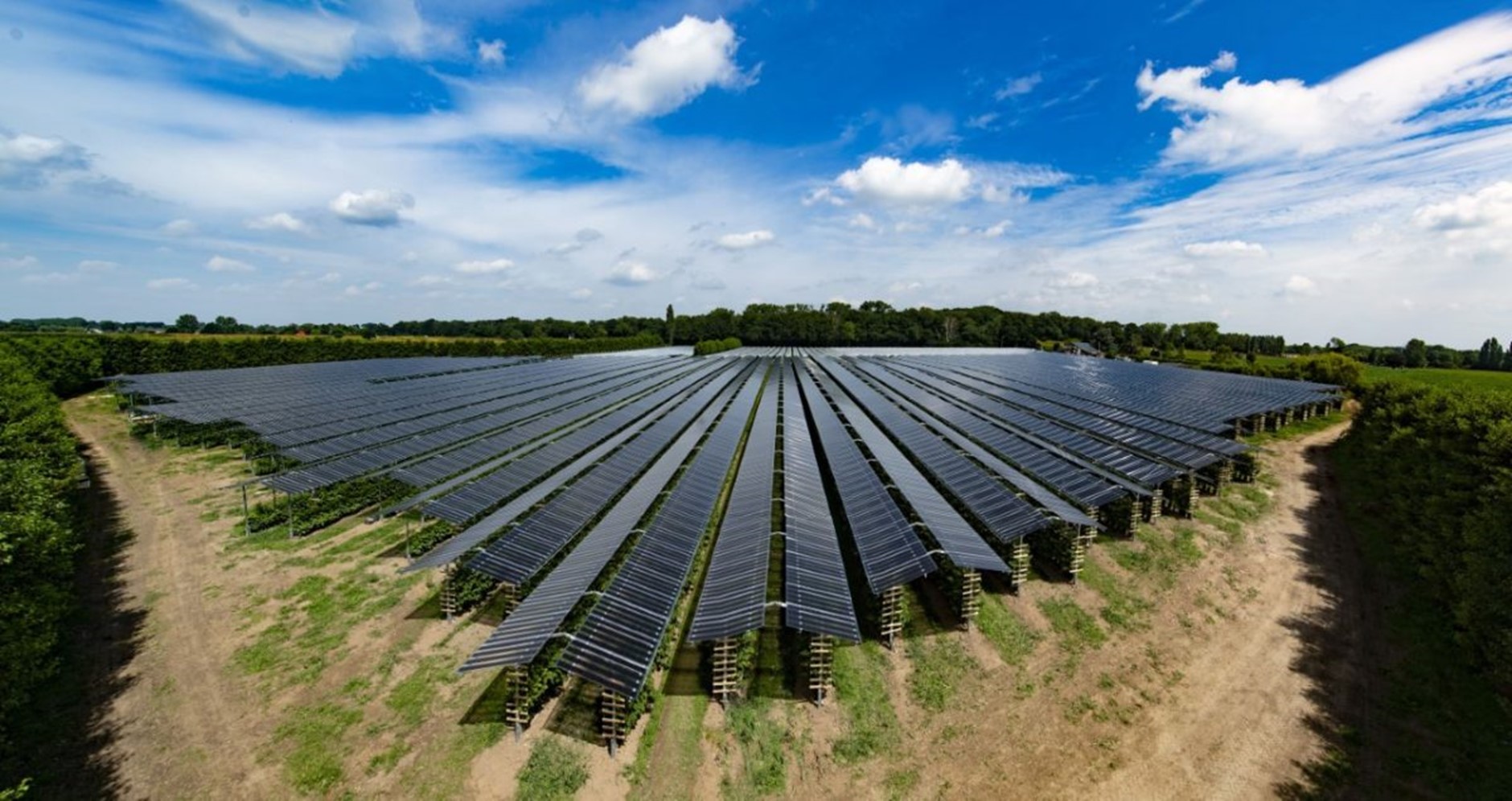

My name is Dr. Sagar M. Jain, Senior lecturer and lead in photovoltaics and optoelectronics, Centre for Renewable Energy Systems (CRES), Cranfield University, UK
Photovoltaics need to be integrated on various infrastructures and for specific applications – However, is it possible to design and manufacture photovoltaics panels in such a way to adapt for the specific application and still perform efficiently?
The answer is “YES”.
For instance, vehicle integrated photovoltaics (VIPV) must have lightweight and flexible nature in order to adapt the external morphology of the vehicles
This is not a dream and is feasible by employing highly efficient and adaptive 3rd generation photovoltaics.
A Dutch company, Lightyear recently launched the world’s first solar production vehicle, the Lightyear 0. The company revealed that this revolutionary vehicle would exceed 1,000 km of range between charges.
World’s first solar car heralds dawn of a new era (msn.com)
The below unique properties of 3rd generation photovoltaics provide an upper hand over conventional Silicon photovoltaics for ATIP application.
- Fine tuning the bandgap of semiconductor and optoelectronic properties during manufacturing to match desired application and ambience,
- Flexible nature of photovoltaics panels that can be manufactured – printed roll-to-roll,
- Higher efficiency over traditional silicon photovoltaics,
- Significantly reduced CO2 emission during their manufacturing,
- Cheaper manufacturing cost.
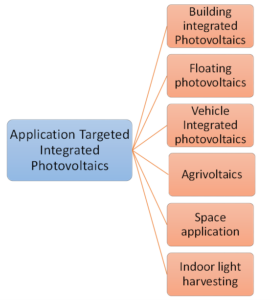
Figure 1. Different types of Application targeted integrated photovoltaics (ATIP)
Space application of photovoltaics – 3rd generation photovoltaics being lightweight and have the capability to fine tune the chemical composition in order to absorb more % of UV-light and several sun illumination present in stratosphere.
Indoor light harvesting using photovoltaics – Can efficiently absorb indoor light of 200 lux to 5000 lux to charge internet of things technologies and even off-grid small electric indoor appliances.
Building integrated photovoltaics – 3rd generation photovoltaics have capability to be employed not only on rooftops but also on vertical walls without changing the aesthetic look of the buildings/offices/ infrastructure and harvesting sunlight to generate energy positive home/offices/buildings.
Agrivoltaics – It is possible to efficiently grow crops below photovoltaics panels without compromising the sunlight/photosynthesis process of crops employing 3rd generation photovoltaics.
Myself with commonwealth fellow Ramesh Kumar prepared some new type of photovoltaic devices that can harvest different wavelength of sunlight.
Shown below;

Figure 2. Detailed investigation on photoluminescence of panchromatic photovoltaics & Light Emitting Diodes devices
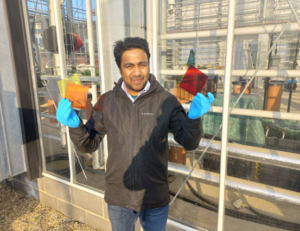
Fig. 3 Me holding panchromatic, bifacial photovoltaic devices near green house facility on campus. Bifacial photovoltaics can be used as window facade that will enable harnessing indoor lights as well outdoor light to generate maximum electricity. Moreover, with such photovoltaic devices it will be possible to transmit selective wavelengths of light that is required for photosynthesis of crops too.
There is already a lot of activity in next generation farming to employ innovative ways of growing crops under these adaptive new generation solar panels (Figure 4 and 5) and one need not compromise with the quality of crops at the expense of generating electricity from these new type of panels.
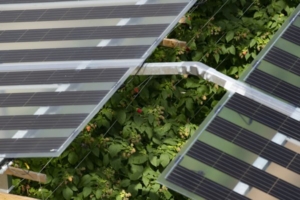
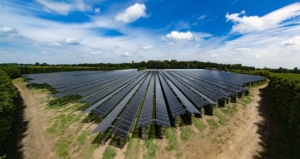
Figure 4 The special panels developed by GroenLeven. Raspberries can grow in sun as well in shade under these panels.
Figure 5 BayWa is building a 2.7 MW PV plant near Arnhem
With skyrocketing fuel and electricity prices we will see more wide spread and innovative deployment of Application Targeted Integrated Photovoltaics over coming years, of that I am sure!
Categories & Tags:
Leave a comment on this post:
You might also like…
From classroom to cockpit: What’s next after Cranfield
The Air Transport Management MSc isn’t just about learning theory — it’s about preparing for a career in the aviation industry. Adit shares his dream job, insights from classmates, and advice for prospective students. ...
Setting up a shared group folder in a reference manager
Many of our students are now busy working on their group projects. One easy way to share references amongst a group is to set up group folders in a reference manager like Mendeley or Zotero. ...
Company codes – CUSIP, SEDOL, ISIN…. What do they mean and how can you use them in our Library resources?
As you use our many finance resources, you will probably notice unique company identifiers which may be codes or symbols. It is worth spending some time getting to know what these are and which resources ...
Supporting careers in defence through specialist education
As a materials engineer by background, I have always been drawn to fields where technical expertise directly shapes real‑world outcomes. Few sectors exemplify this better than defence. Engineering careers in defence sit at the ...
What being a woman in STEM means to me
STEM is both a way of thinking and a practical toolkit. It sharpens reasoning and equips us to turn ideas into solutions with measurable impact. For me, STEM has never been only about acquiring ...
A woman’s experience in environmental science within defence
When I stepped into the gates of the Defence Academy it was the 30th September 2019. I did not know at the time that this would be the beginning of a long journey as ...








Comments are closed.